Risk using city dump compost?
I recently found that my city dump has a compost pile you can take for free if you have a permit which is also free for residents. It is real nice and black but does have some fragments such as sticks and bits of plastic here and there. My question is would you risk using it on your veggie, flower gardens? I already used it to help start new seeds on the edge of a new patio and in transplaning new flowers but am a bit worried about weed seeds for the veggie garden. Our compost pile is not fully decomposed yet so we will not be able to use it until fall. I am using sterile straw to combat weeds in my lettuce, peas, herbs and radishes but have yet to plant the warm tomato, cucumber, squash, eggplant. What are your thoughs?
Comments (37)
ericwi
13 years agoIf I needed more compost, and if I had the room, I would take some of the free compost you describe, and start a pile in my yard, using the free compost as a base. I would let it work through the summer, and then use it in the spring of 2011.
nutsaboutflowers
13 years agoI wouldn't touch city dump compost with a ten foot pole.
If you're wanting to do organic gardening, stick with your own compost, even if you have to wait for it.
You're risking filling your yard with whatever anybody decided to throw into that compost, which is very likely a lot of things you wouldn't. You've already found plastic. There's no way to know if there's things like used motor oil, glass, etc., in there.
Just my two cents worth =:)
Related Professionals
North New Hyde Park Landscape Architects & Landscape Designers · Salisbury Landscape Architects & Landscape Designers · Woburn Landscape Contractors · Beachwood Landscape Contractors · Broomfield Landscape Contractors · Damascus Landscape Contractors · Hayden Landscape Contractors · Manhattan Landscape Contractors · Middletown Landscape Contractors · Plantation Landscape Contractors · West Palm Beach Landscape Contractors · Yukon Landscape Contractors · Fountain Hills Outdoor Lighting & Audio Visual Systems · Novi Decks, Patios & Outdoor Enclosures · Santa Monica Decks, Patios & Outdoor EnclosuresDan _Staley (5b Sunset 2B AHS 7)
13 years agoI would think the %age of people afraid of municipal compost is very small.
If your city is halfway competent they'll catch the one leaf bag in which someone dumped their oil filter. If all you can find is a piece or two of plastic, the chances are very high that you won't be poisoned.
Dan
marlingardener
13 years agoI'd use it on flower beds, but not on any bed that contains edibles. As a horticultural volunteer at a local college, I tossed a lot of city compost onto flower beds and a stand of Buffalo grass. It looked and smelled pretty good, and was beneficial. But, not knowing the history of what was in it, I'd certainly not use it on vegetables.
gardengal48 (PNW Z8/9)
13 years agoI would think the %age of people afraid of municipal compost is very small.
If it isn't, it should be :-) Compost is the great neutralizer. If the stuff is properly composted, then there is minimal risk. The composting process breaks down any harmful components, including any pesticides that are available to homeowners and will eliminate weed seeds and potential pathogens. It really doesn't make any difference what goes into the mix or its 'history', etc. -- it is the end result that is of value and if it smells properly and looks good, I would have no concerns about using it.
Dan _Staley (5b Sunset 2B AHS 7)
13 years agoWell said GG. Chemistry doesn't stop working in compost piles.
Dan
gardengal48 (PNW Z8/9)
13 years agoFWIW, municipal composting operations, like that generated by the city dump, tend to be more efficient at the composting process than the typical homeowner just by virtue of scale. Larger piles heat up more effectively than smaller ones and especially those that are manipulated frequently, as are most municipal compost operations, with dozers or front end loaders moving stuff around constantly. And larger piles maintain/retain the heat of the process better and it is the heat generated that ensures the composting process is thorough.
nutsaboutflowers
13 years agoAt the risk of sounding paranoid to some...........
What about grass and weeds, combined with lead paint peeling from old fences? What about grass and weeds where irresponsible contractors dumped all kinds of things? What then?
It happens far more than people think, I'm sure. We had a contractor, without my knowledge until it was too late, dump all kinds of things in my garden, where this year, I was going to plant vegetables, but won't now.
gardenlen
13 years agofor me use what you need to but with education if you are aware of what does go into this stuff then that is ok. no good saying things will be different here than there or there than here, but over here our local councils are charged with disposing of industrial waste and all manner of other waste like old furniture and fencing you name it. high grade waste gets trained through small town on its way to an incinerator unit.
so the stuff that ends up at the tip that can be chipped up is added to this compost, that could include CCA treated timbers? it does include up to medium grade liquid industrial waste anything that will beak down and yes bits of plastic material get mixed in along the way. then gets added in the humus composted from the sewerage farm, and light industrial waste along with hospital waste goes into the sewerage system.
not to top it off this finished product mentioned above gets sold in bags as soil improvers and is the base for all potting mixes, and if it was feasable they would ship it to farms to be ploughed in , guess then it would not be free, over here sometimes free most times has to be paid for and no cheaper than buying bulk anything from the nursery.
do i use it yep when i need something as it is the easiest to get.
len
Here is a link that might be useful: lens garden page
zardthegardener
13 years agoI'm using free county compost this year. I dumped a whole bunch last fall. If I didn't, I would still be using miracle grow. So far, it's going fine. Plants are not as big as last year, but I guess that's what happens when your plants are not on steroids. This spring, I dumped a bunch of shredded leaves as mulch. Two beds basically have no weeds. One bed has a few weeds, but they look familiar, so I doubt they were from the compost.
BTW, my county compost still has little sticks in them, so it's not finished compost either. I didn't dig the compost in, so I guess, it's considered mulch too? I added some corn meal, and it seems the plants got greener and happier.
If I had to do it over again, I would still use county compost.
annpat
13 years agoI go to a compost facility several times a week in the fall bringing home grass clippings, leaves, pumpkins, apple and pear drops, and all the dahlias and glads that people throw away each fall. The pile is turned constantly and smoke pours out of the top of the pile all winter. There are always two mountains of compost---the one people contribute to and the pile made the year before. That pile stinks. I got a truckload yesterday. It smells unlike any compost I've ever made in my own yard---including from the ingredients that I bring home from there to compost myself. I know from the heat generated and the speed with which the compost is made that it's being done right.
Most of the stuff I see when I go there is legit, but the finished product always contains a lot of wood hunks, some of it from trees and some of it lumber. There are lots of bags brought there in addition to the loose ingredients. I've brought home a few undesirable things in those bags---the sweater an overzealous helper fed into my chipper a few years ago, which bound it up tight. I haven't identified anything more insidious. But I always wonder when we're reassured about the purifying magic that takes place during composting.
So, reassure me again, please. I'm taking my brother his birthday present today---based on this thread's reassurances---a truckload of city compost. He's going to use it on his vegetable garden. If it contains motor oil, concentrations of pesticide, from the homeowner knocking over his DDT container while raking, or pressure treated wood particles, lead paint, this is all fine if the product underwent composting?
(I did have the compost in this picture tested a few years ago for certain heavy metals, and it passed, but that's one year, one truckload.)
{{gwi:141661}}
anney
13 years agoDon't most composting facilities have lists of what should NOT be included in their compost, for citizens and organizations and their employees who pick up materials to be composted?
You may say that people will ignore such a list and put discarded diesel oil and dead cats in the materials, but I really think that people who would go to the trouble of separating their garbage for disposal wouldn't do that. They'd be pretty careful. There are federal standards for creating compost which government agencies (not private ones) must adhere to or face hefty fines. Government agencies are not likely to be including environmentally unsafe materials in their compost.
As I said before, you need to be more cautious about private or commercial operations that gather it and offer it to the public. They are not under the same aegis to follow the rules as the government.
annpat
13 years agoIn the neighboring town I go to, you have two choices of what to do with your leaves and grass clippings. You can leave them on your lawn or you can take them to the dump. The people who utilize the dump are not necessarily recyclers, and the people who bring their leaves to the dump are not composters or even gardeners necessarily. They're any person in the town with yard trash they want to get rid of. And I don't think it's the least bit unlikely that the oil they drain out of their lawn mowers might go into a leaf bag. (Especially when you hear that even participants on composting forums think that composting purifies materials run through it.) Not that engine oil is my biggest concern.
There is no one at the dump as a supervisor. I can go there at nine o'clock at night if I want to---and have. There is one sign, No Brush, although I'm sure they mail the residents a list of approved materials. Despite the sign, there is a lot of brush and building materials that get in the mix.
I'm sure there are a lot of towns in Maine---near colleges or something---where compost is regulated and heads roll if the wrong thing is included in the leaf bag. But there are lots of people---still---in Maine who think that recycling, pesticides bans, etc. are the laughable antics of granola-types.
So? Lead paint from the porch railing that rotted and someone tossed in their leaf bag. Does composting take care of that? Is that what we're saying or is what we're really saying, "Probably no one puts bad stuff in with their grass clippings and leaves."
anney
13 years agoannpat
I'm sure a lot depends on the town or county where the recycling is done. Some places will take raked leaves only, such as the NJ county where I used to live. If I had my druthers, that's what I'd want.
I guess responsible gardeners will ask and check for themselves before deciding to use "unknown compost"!
annpat
13 years agoSo the next time this question is asked, perhaps the responsible answer is "If your composting facility is stringent, and if all contributors obey the guidelines, and if the entire pile reaches adequate temperatures, it's fine to use municipal compost.
Dan _Staley (5b Sunset 2B AHS 7)
13 years agoA more accurate "responsible" answer is closer to "there is a small chance of risk of encountering unacceptable material if the composting facility is stringent and folks adhere to the guidelines".
But if you are watering with city water, your chances of watering with endocrine disruptors are high and will contribute more to your chemical burden that the chance of finding something in your compost. IMHO.
Dan
david52 Zone 6
13 years agoHere we worry about space ships landing and dumping out their waste tanks like they do campers and then that gets raked up and taken to the compost place.
I have compost envy because I don't live in the city, and don't have access, but have to drive by the big municipal pile that just sits there because everybody is worried about the outer space blight.
Annpat enlarged that photo of her compostable stash "by mistake"?
As if.
annpat
13 years ago(Any time I want, david, 24 hours a day, 7 days a week, I have access.)
I'm not trying to be contentious, I just wanted to know: Is it chemistry, as two people said; or is it faith in your fellow man?
Say for instance, you know for an absolute fact that the compost you're getting had a can of motor oil, a porch banister painted with lead paint, and 1/3 of an ounce of the most dangerous pesticide on the market, as part of the feedstock from which it was created. So we're saying that composting chemically purifies harmful feedstock and we should feel comfortable growing food in that compost? Or are we saying, "those things are probably not in commercial compost?"
Don't get me wrong. I, myself, am not especially concerned. I grew my cucumbers in almost straight municipal compost last year and, unlike some of you, I have, and had, absolutely no faith that it was made from strictly harmless ingredients. I smoked. I drink. My parents slathered me with chemicals when I was a child. I've got no hope.
But I am curious about the claims.
Dan _Staley (5b Sunset 2B AHS 7)
13 years agoOr are we saying, "those things are probably not in commercial compost?"
We are not saying those things. We are saying that the chance of those things surviving the process and being a PPM fraction that poses a short- or long-term health risk are very small.
Now, the space aliens dumping their waste and listening devices to track our movements, there's a good chance of that. David, what's the frequency?
Dan
idaho_gardener
13 years agoI don't know what town you're in, but I know that the city of Greenwich used to have a very good composting operation. Unfortunately, it was too close to some residences and the fragrance that was generated was offensive to the locals. They had to shut it down and last I heard, they were landfilling the leaves.
The composting operation of that town was very popular with locals picking up loads of composted leaves.
I would try out a few loads of your local municipal compost to see how well it works. If you want to test it to see if it's 'finished', try sprouting some carrot seeds in it.
annpat
13 years agoI repeat, I'm not concerned. I'm not concerned at all. I used to put iodine in my baby oil for tanning. I eat French Fries. I live in Maine where the biggest selling Christmas gift this year was the remote automobile exhaust starter.
"Seeing how it works" is not the issue. You can sprout seeds in soil that could harm you. My concern is....actually I have no concerns....
other people on this thread had concerns. I just wanted to make sure, because it began to sound like people were backtracking. At first it was that Chemistry and Composting purified compost feedstock and then it sounded like "as long as everyone involved in the process is vigilant..."I'm good now. I'll go with the PPM thing.
gardengal48 (PNW Z8/9)
13 years agoI think there is a possibility that we can over-simplify this issue. There is compost and then there is compost.....I have little to no concern for any ingredients included in a compost that is properly and thoroughly prepared. The composting process, if done correctly and thoroughly, will eliminate the risk from any pathogens or other contaminates - that's just what composting does. But not all municipal composting operations are created equal and I do believe some vigilance is necessary to know what it is you are getting and using. Typically that can be determined by an inperson visual of the operation and the product. If it looks and smells like a quality compost and with little indication of foreign objects included, then chances are very good it is a perfectly acceptable and safe product.
I would not call the photo annpat provided a "compost" operation -- it appears to be only a large pile of leaves and other (hopefully) yard debris. Whether or not this is manipulated into a composting operation or just allowed to sit and decompose in place with no manipulation is not obvious. I'd be OK with the first but not so OK with the second.....a static pile is unlikely to generate the heat necessary to eliminate weeds and pathogens or to adequately breakdown any other non-organic contaminates.
FWIW, this is what my local "city dump" compost operation looks like in part. It is a very large operation with three separate sites, each covering many acres, and processes tons of yard, kitchen and restaurant waste each year. Everything is screened first to eliminate larger, non-organic "contributions", then shredded/ground and then composted. It is heated to 130F, held in a holding area for 30-45 days then "cured" for another 6-18 months before it is bagged or released for bulk sales. This a certified organic product. And that "smoke" that is coming from the pile is actually steam from the heat generated by the composting activity.
{{gwi:141662}}
And this is what the finished product looks like:
annpat
13 years agoBrewer, Maine's compost is turned frequently, and consists of more than the leaves pictured in the Fall photo, although there are no restaurant contributions, I'm sure. When I go there, I find grass clippings, leaves, pumpkins, apple drops, pear drops, the contents of plant pots, straw and hay bales, and other yard waste . I usually bring the contributions home and build my own compost piles or leaf mold bins out of them. Rarely do I bring home the finished compost. The piles steam heavily year round, but they are never sifted and woody contributions often survive the final stages. There is no supervision, and the compost is there---free---for the picking at any stage of the process. It reeks, and not in the good way that manure reeks, for instance.
I bet more composting facilities, than not, are managed similarly. So do we revise---qualify---how we answer this question in the future?
kskasia
Original Author13 years agoFollow up:
I did end up using it in flower and shrub beds. I did not use it in my veggie garden. I will wait and see if my flower beds get more weeds than normal I guess.
Southington is pretty strict about what you dump. They are only open once per week for a few hours and each person is inspected and told where to go. Near the compost piles there is a guy in the truck that overlooks things to make sure people don't toss things they shouldn't. This deters most people from dumping unwanted items although I am sure there are other who still do it. Looks like tree branches, shrubs, leaves, etc get put in the piles from what I saw. I am have seen various stages of compost piles and they look pretty good with no visible junk in them.
In the fall I plan on getting a truckload of it and lightly spread it on my lawn and overseed. Hopefully that will help my poor lawn that is being overun by white clover. I hate the way the flowers look in my lawn. It has gotten progressively worse since we started doing the organic fertilizer steps from Agway.prairiemoon2 z6b MA
13 years agoI haven't read this whole thread. I thought I would just share my own perspective on the question. I have been tempted to get 'free' compost that local towns make, but I decided against it. I've gardened the same property for 25 years and have kept it organic all that time. I know what I've done and what I haven't done. I see my neighbors and what they've done on their properties and what is on their lawns that they then share the grass clippings with the town. So why would I want to take compost made with what they've done and produced when my own garden has been pure and healthy in comparison?
We save leaves and chop them on the lawn and make our own compost. Sometimes in the flower beds I might buy Organic Coast of Maine products. On the vegetable beds, nothing but cover crop turned in and chopped leaves are added.
daisyp
13 years agoOkay, most of these posts are about SHOULD you use City or commercial compost. Well, we actually DID buy 5 sq. yards of compost from a Cape Cod garden store. "Is it organic, well, it's mostly made out of leaf mold". Unquote. Sounds good, right?
The stuff looks beautiful--black, fine, smells good. One year later, there are no weeds growing in it--no roots, no worms, nada! In OUR own pile the local trees and bushes are sneaking their roots in to get some goodies, plus there are worms. And we need LOTS of compost. It is hard to make enough. What to do?
john_in_sc
13 years agoAs some others have mentioned here....
Since this is an "Organic Board"
You can't consider it "Certified USDA Organic" unless it comes certified.... You have no idea whether someone used Weed and Feed or synthetic fertilizers or persistent herbicides on something then brought it to the mulch yard....
But... It can make great compost if you aren't worried about "Certified USDA Organic"...
The "Safety Check" that many folks do is to get a nice big pile -- then pile it up and let it sit for a year before using it... This helps dissipate herbicide residues that may cause die-off's when you use it immediately in a garden....
Why? I know more than 1 person whose garden died after using fresh municipal compost... Turns out it had residual 2-4-D in it... a fine Broad Leaf Herbicide.... and garden veggies are *ALL* broad leafs...
Thanks
John
riverfarm
13 years agoWould allowing it to sit for a year really render the 2-4-D innocuous, though? How long does the active ingredient persist - or the surfactant, for that matter, since those often cause as much trouble if not more than the actual weedkillers.
Someone on another site mentioned buying a product labelled as garden earth and finding all sorts of garbage in it. I don't remember the details but it was not something she'd ever have wanted to grow edibles in.
zzackey
8 years agoI wouldn't recommend it. I used the local dumps soil for my plants. It had all kinds of weed seeds in it and beer bottle caps and broken glass.
stevie
8 years agolast modified: 8 years ago> Where is this free compost?
Lol. my city is full of corruption. not only do they NOT provide compost (we pay some of the highest taxes in the nation) but they actually charge you if you want to get rid of your compostable scraps.. then, they compost it and sell it. those that do pay to have their scraps collected are eligible to receive a whopping 25lbs of compose two times per year (fall/spring).. what a slap in the face.
stuff like this should be illegal.. guess they feel guilty so they are nice enough to provide residents with a TINY free composting bin (yipee) if you wish to compost your scraps..
Kansas Gardener
2 months agoOur landfill uses leaves and grass for their compost. It's in long rows and they use a large machine they drive next to the rows to turn it. They also keep track of the temperature with long thermometers. I've used it and continue to use it. It's not screened so I made a screen box and do it myself. Lots of plastic. Not plastic bags as they are not allowed in the material piles. More like things that might be on someone's lawn and they run it over with the mower. Kids small toys plastic bottles etc. It's low in nitrogen and high in P&K. The landfill has not had it tested but I know they take it to temperature and it's nice a black. I use it and have noticed many popular YouTuber gardeners also use commercial compost but there are places that make quality compost. I say it's up to you if you use it or not. It's a choice only you can make.
prairiemoon2 z6b MA
2 months agolast modified: 2 months agoIn an ideal world, people would not be applying herbicides and pesticides on their lawn and all that town made compost would be a great resource. I would actually feel it was more beneficial if they made leaf mold with all the collected leaves, because no one adds chemicals to their leaves. Until then I am always short on compost but if you have land to have a garden you can usually find space for a small compost pile. Even if you just have a passive one, and leave it to break down, it's a great resource.
The past few years I've been building Berms. I collect branches broken in smaller pieces, grass, leaves, weeds, and kitchen scraps in two plastic bins and when they are half finished, I empty them into a wheel barrel, pile them up along the lower end of my full sun bed, and shape it like a sausage about 1.5 to 2ft high, top it off with leaves and then bagged bark mulch and it's done. I leave it in place and it actually helps keep the rainwater in the bed and doesn't allow it to run off. And I was very surprised at how good the soil was before the summer was even over. What I love about it, is it is so easy to do and I know what is in it.
This past fall, I covered 3 vegetable beds for next year with it's own 2ft high berm and instead of bark mulch, I put a thick layer of salt marsh high as a topper. I'm excited to see how the soil is in the spring.

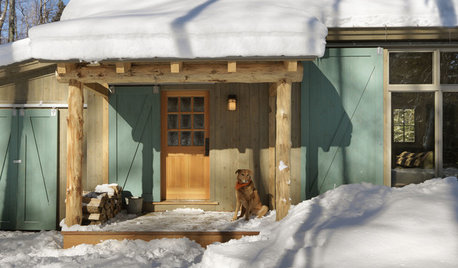
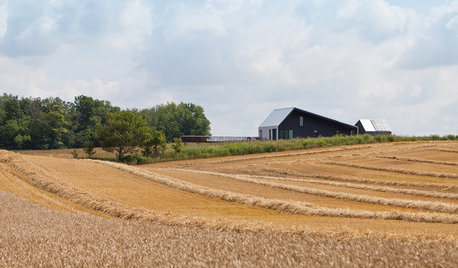
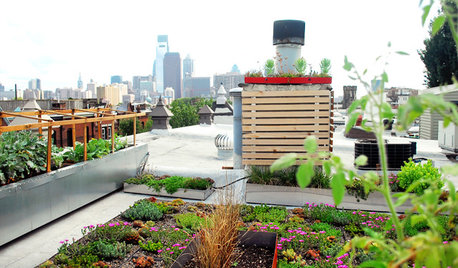
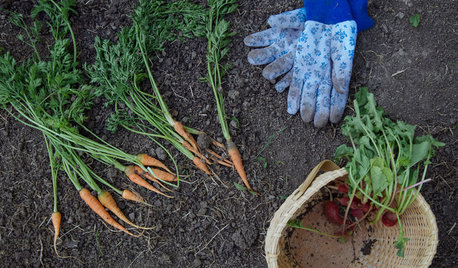
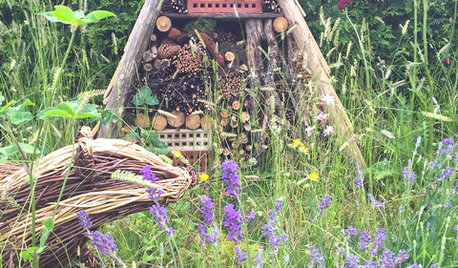


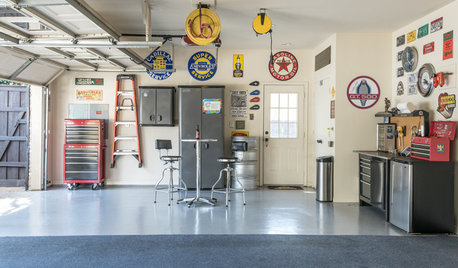
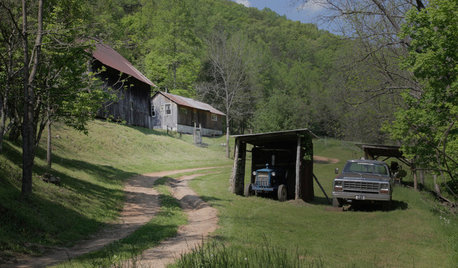







californian